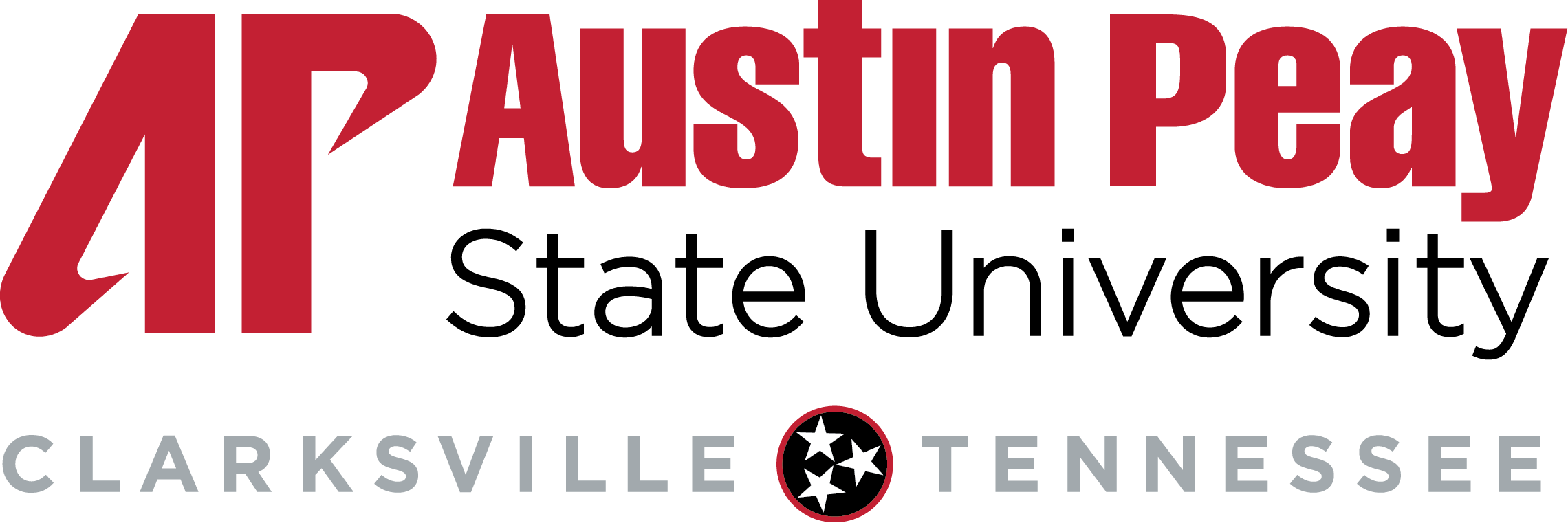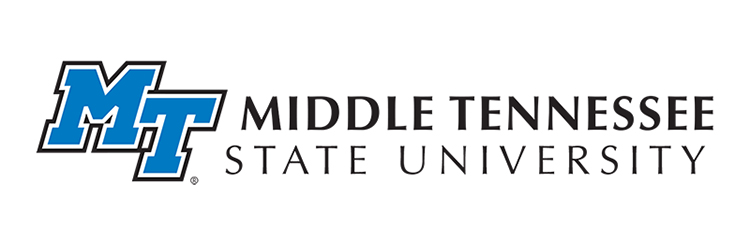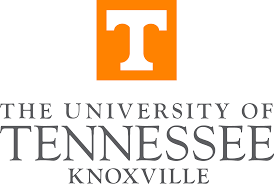Are you thinking of pursuing a Master’s degree in Psychology? Well, Tennessee might just be the perfect place for you! With its rich culture and stunning scenery, Tennessee offers a great environment for personal and professional growth.
But it’s not just about the lifestyle – Tennessee is also home to some amazing Ph.D. in Psychology programs. These programs offer a range of specializations, from clinical psychology to counseling, and can help you gain the knowledge and skills you need to become a licensed psychologist in the field.
With the information and resources provided in this guide, we hope to make the licensure process more manageable for aspiring psychologists in Tennessee. Depending on whether you’re just starting your career in psychology or looking to advance it, we’re here to assist you in navigating the licensure process successfully.
Tennessee Master’s in Psychology Programs
With the increasing demand for qualified professionals in the field of psychology, pursuing a Master’s degree in this field can offer a range of career opportunities.
Tennessee is home to several universities and colleges that offer Master’s in Psychology programs, each with unique features and specializations. Whether you’re looking to advance your career or deepen your knowledge in psychology, this guide will provide you with valuable information on the available programs and how to choose the right one for you.
Master of Science in General Psychology
University of Memphis – Master’s in General Psychology (MSGP)

The University of Memphis offers a Master’s in General Psychology (MSGP) program with various options for completion. Their program is also accredited by the Southern Association of Colleges and Schools Commission on Colleges (SACSCOC) and the National Association of School Psychologists (NASP).
Students in the General Psychology program must complete a total of 33 credit hours if they elect to do a thesis or 36 credit hours if they choose a Specialty Review Paper instead of a thesis. The program includes coursework in a variety of areas, including statistics, research methods, cognitive psychology, developmental psychology, social psychology, and biological psychology. The curriculum is designed to provide students with a solid foundation in psychological theory and research, as well as specialized training in areas of interest.
- Location: Memphis, Tennessee
- US News Ranking: 263 out of 443 National Universities
- Cost Per Credit: In-state graduate students will be charged $313 per credit hour, with no maximum limit on the number of credit hours. Out-of-state graduate students, on the other hand, will be charged $677 per credit hour.
Click here for Masters in Clinical Psychology programs in the state of Tennessee.
Fisk University – Master of Arts in Psychology

Fisk University’s Master of Arts in Psychology program is accredited by the Southern Association of Colleges and Schools Commission on Colleges (SACSCOC). The program offers concentrations in clinical or general psychology and requires two years of academic and related work, as well as a thesis. The coursework for both concentrations includes 18 semester hours of common coursework.
However, the programs differ in the minimum number of required semester hours and in the specific courses required beyond the common 18 hours. Both concentrations are designed to provide a foundation for advanced study or qualify students for appropriate master’s level professional positions in the broad fields of human behavior and services.
- Location: Nashville, Tennessee
- US News Ranking: 151 in National Liberal Arts Colleges
- Cost Per Credit: Graduate programs charge a tuition of $1,158 per credit hour, reflecting a 2.99% increase from the previous academic year’s rates.
Lipscomb University – Master of Science in Psychology

Lipscomb University offers a Master of Science in Psychology program that aims to provide students with a deep understanding of human behavior and mental processes. The program consists of 39 credit hours and is delivered in-person at the main campus, allowing for a personalized and immersive educational experience.
Having been accredited by the Southern Association of Colleges and Schools Commission on Colleges (SACSCOC), students enrolled in the program will get to explore various areas of psychology, such as cognitive, social, developmental, and abnormal psychology, as well as research methods and statistics. Coursework is designed to provide a solid foundation in psychological theory and research methods, as well as hands-on experience in conducting research and analyzing data.
- Location: Nashville, Tennessee
- US News Ranking: 212 in National Universities
- Cost Per Credit: Graduate students are required to pay $965 per credit for tuition.
Master of Science in Psychology: Research Concentration
University of Tennessee Chattanooga – M.S. in Psychology: Research Concentration

At Lipscomb University, the Master of Science in Psychology program offers 39 credit hours of rigorous coursework, preparing students for a wide range of psychology-related professions and graduate-level study in psychology, medicine, business, law, and other related fields. The program is offered in-person on the main campus, allowing students to immerse themselves in a supportive and collaborative learning environment.
Lipscomb University’s Master of Science in Psychology program is fully accredited by the Southern Association of Colleges and Schools Commission on Colleges (SACSCOC), ensuring that students receive a high-quality education that meets rigorous standards.
The MS in Psychology: Research Concentration program at the University of Tennessee Chattanooga requires a total of 36 credit hours for completion. Some of the specific courses offered in this program include Experimental Design, Multivariate Statistics, Advanced Research Methods, and Cognitive Neuroscience.
- Location: Chattanooga, Tennessee
- US News Ranking: 331-440 in National Universities
- Cost Per Credit: We advise you to contact directly by their email at gradinfo@utc.edu with any questions on updated program cost & related learning fees.
Master of Science in Industrial-Organizational Psychology (MSIO)
Austin Peay State University – Master of Science in Industrial-Organizational Psychology (MSIO)

The Master of Science in Industrial-Organizational Psychology (MSIO) program at Austin Peay State University is a fully accredited program by the Southern Association of Colleges and Schools Commission on Colleges (SACSCOC). It’s designed to provide students with an online option to advance their knowledge and skills in the field of Industrial-Organizational Psychology.
With 34 credit hours, the MSIO program can be completed entirely online and can be finished in less than two years, depending on the admission semester and milestone path. The coursework includes topics such as research methods, organizational behavior, performance management, and data analysis. The program also includes a capstone project, which allows students to apply their knowledge and skills to real-world problems.
- Location: Clarksville, Tennessee
- US News Ranking: 41 out of 136 Regional Universities South
- Cost Per Credit: In-state graduate students are charged $440 per credit hour for tuition, while out-of-state graduate students are charged $699 per credit hour.
Master of Science in Counseling Psychology
Tennessee State University – M.S. in Counseling Psychology

Tennessee State University offers a Master of Science in Counseling Psychology program that is accredited by the Southern Association of Colleges and Schools Commission on Colleges (SACSCOC). The program curriculum includes courses in areas such as human growth and development, counseling techniques, group counseling, and psychopathology. Additionally, students are required to complete a supervised practicum experience in a counseling setting.
To graduate from the program, students must complete a minimum of 48 credit hours, including core courses, electives, and a capstone experience. Graduates of the program are prepared to pursue careers in a variety of settings, including community mental health centers, private practice, hospitals, and schools.
- Location: Nashville, Tennessee
- US News Ranking: 331-440 in National Universities
- Cost Per Credit: The tuition for in-state, full-time students is approximately $302 per credit hour, including fees, while out-of-state tuition and fees are around $1,000 per credit hour.
Master of Arts in Experimental Psychology
Middle Tennessee State University – M.A. in Experimental Psychology

Middle Tennessee State University offers a Master of Arts in Experimental Psychology program that is designed for students who want to pursue doctoral-level training in psychology or other related fields. The program is accredited by the Southern Association of Colleges and Schools Commission on Colleges (SACSCOC).
The 36-credit hour curriculum includes coursework in research methods, statistics, and experimental design. Students will also have the opportunity to take elective courses in areas such as social psychology, developmental psychology, cognitive psychology, and neuroscience.
One unique aspect of the program is the hands-on research experience that students gain through a required thesis project. This provides students with the opportunity to work closely with faculty members on original research and to develop skills in research design, data analysis, and scientific writing.
- Location: Murfreesboro, Tennessee
- US News Ranking: 299 out of 443 National Universities
- Cost Per Credit: Graduate students who are residents of Tennessee can expect to pay $522 per credit hour for tuition, while out-of-state students will pay $1,445 per credit hour. It is worth noting that these tuition rates have remained the same as the academic year of 2021-2023.
Master of Arts in Quantitative Psychology
Middle Tennessee State University – Master of Arts in Quantitative Psychology

Middle Tennessee State University offers a Master of Arts in Quantitative Psychology program that is designed to provide students with a solid foundation in statistical analysis and research methodology in the field of psychology. The program is accredited by the Southern Association of Colleges and Schools Commission on Colleges (SACSCOC) and consists of 30 credit hours of coursework.
Students in the program are required to take courses in research design, advanced statistics, and quantitative methods in psychology, as well as elective courses in areas such as cognitive psychology, social psychology, and developmental psychology. In addition, students are required to complete a master’s thesis or an applied project that demonstrates their mastery of the material covered in the program.
- Location: Murfreesboro, Tennessee
- US News Ranking: 299 out of 443 National Universities
- Cost Per Credit: On the same note, tuition fees for graduate students who are residents of Tennessee are $522 per credit hour, while out-of-state students pay $1,445 per credit hour.
Master of Arts in Educational Psychology
Tennessee Tech University – M.A. in Educational Psychology

Tennessee Tech University offers a Master of Arts in Educational Psychology program that focuses on providing students with a comprehensive understanding of learning and instruction psychology. The program is accredited by the National Council for Accreditation of Teacher Education (NCATE), ensuring that students receive a high-quality education that meets rigorous standards.
To complete the program, students must fulfill a minimum of 33 credit hours, which includes courses in educational research, human development, learning and cognition, and educational statistics. Students also have to undertake a research thesis or project under the mentorship of a faculty advisor.
What’s more is, Tennessee Tech also offers a MA in Clinical Mental Health Counseling, and Master of Arts program in School Psychology that prepares students to assess and intervene in a variety of school-based scenarios.
- Location: Cookeville, Tennessee
- US News Ranking: 285 in National Universities
- Cost Per Credit: The tuition per credit for this program is $664.
Master of Arts in Experimental Psychology
University of Tennessee Knoxville – Master of Arts in Experimental Psychology

The University of Tennessee Knoxville offers a Master of Arts in Experimental Psychology that covers four areas of research: Biological Psychology, Developmental Psychology, Industrial & Applied Psychology, and Social & Personality Psychology. The program is fully accredited by the Southern Association of Colleges and Schools Commission on Colleges (SACSCOC).
Students in this program are required to complete a minimum of 30 credit hours, including coursework in experimental methods, statistics, and research design. Moreover, students will select electives from a range of topics related to the four areas of research. Experimental graduate students will acquire breadth of knowledge of these areas, but are expected to identify a particular area and conduct research primarily in that area.
The program also provides opportunities for research and hands-on experience through faculty-led research projects, internships, and teaching assistantships. Upon completion of the program, graduates will have the skills and knowledge needed to pursue careers in academia, research, industry, or government agencies.
- Location: Knoxville, Tennessee
- US News Ranking: 115 in National Universities
- Cost Per Credit: We advise you to contact directly by their email at admissions@utk.edu with any questions on updated program cost & related learning fees.
Master of Science in Educational Psychology
University of Tennessee Knoxville – M.S. in Educational Psychology

The University of Tennessee Knoxville’s Master of Science in Educational Psychology program is fully accredited by the Southern Association of Colleges and Schools Commission on Colleges (SACSCOC) and emphasizes the concepts, principles, techniques, and models of educational psychology. It is designed to enhance effective teaching and learning and create optimal classroom environments for learners of all ages.
Students in this program must complete 24 credit hours of core courses, which focus on topics such as human development, learning principles, assessment, and psychoeducational intervention. The concentration is intended to equip students with the knowledge and skills needed to pursue advanced studies in educational or school psychology at the doctoral level, or to take on educational roles in schools, mental health centers, and business programs that emphasize personal and professional development.
- Location: Knoxville, Tennessee
- US News Ranking: 115 in National Universities
- Cost Per Credit: We advise you to contact directly by their email at admissions@utk.edu with any questions on updated program cost & related learning fees.
Combined B.A./M.A. in Psychology.
Vanderbilt University – Combined B.A./M.A. in Psychology.

Vanderbilt University offers a Combined Bachelor of Arts/Master of Arts (BA/MA) program in Psychology, which allows students to earn both degrees in five years of study. Students in the program will take a range of courses covering topics such as research methods, statistics, cognitive and social psychology, developmental psychology, and abnormal psychology.
To be eligible for the BA/MA program, students must have completed at least 75 credit hours of undergraduate coursework with a minimum GPA of 3.5 in psychology courses and an overall GPA of 3.0. Students must also submit GRE scores, letters of recommendation, and a personal statement as part of the application process. The program is accredited by the Southern Association of Colleges and Schools Commission on Colleges (SACSCOC), ensuring that students receive a high-quality education that meets rigorous standards. Graduates of the program will be well-prepared to pursue careers in a variety of fields, including research, clinical practice, education, and more, or to continue their studies at the doctoral level.
- Location: Nashville, Tennessee
- US News Ranking: 13 in National Universities
- Cost Per Credit: According to the data from US News & World Report, Vanderbilt University’s tuition and fees for the academic year of 2022-23 is $60,348.
Tennessee Psychology Licensing and Resources
We understand that navigating the licensure process can be challenging, which is why we’ve gathered a list of resources to help you navigate the licensure process from notable organizations based in Tennessee to provide you with firsthand insights into the licensure process.
These resources include links to licensure exam study materials, licensure application forms, and professional organizations that can provide support and guidance throughout the licensure process.
Tennessee Psychologist License Lookup: With regularly updated information on the licensee’s status, license type, expiration date, and any disciplinary actions taken against them, the Tennessee Psychologist License Lookup is a valuable tool for ensuring the safety and well-being of the public.
But that’s not all – the platform also promotes transparency and accountability within the field of psychology. By making disciplinary actions taken against licensees publicly available, the Tennessee Psychologist License Lookup holds psychologists to a high standard of professionalism and ethical conduct. So whether you’re a prospective client or a concerned citizen, the Tennessee Psychologist License Lookup is a powerful resource for anyone seeking reliable information on licensed psychologists in the state.
Tennessee Board of Examiners of Psychology: As part of its mission to ensure public safety, the Tennessee Board of Examiners of Psychology maintains an up-to-date database of licensed psychologists in the state. This database allows individuals to verify the licensure status and qualifications of psychologists before seeking their services.
The board also sets ethical standards for psychologists and investigates complaints of professional misconduct, taking swift action when necessary to protect the public. From imposing fines to revoking or suspending licenses, the board ensures that all licensed psychologists in Tennessee are held accountable for their actions. Thanks to their tireless efforts, the public can have confidence in the integrity and professionalism of the psychologists who serve them.
Society of Biological Psychiatry: The Society of Biological Psychiatry is a professional organization dedicated to advancing research and education in the field of biological psychiatry. Biological psychiatry is a branch of psychiatry that focuses on the scientific study of the biological basis of mental disorders, including the genetic, biochemical, and physiological factors that contribute to their development and treatment.
One of the key goals of the Society of Biological Psychiatry is to improve patient care by promoting evidence-based practices in biological psychiatry. The society advocates for the integration of biological and psychosocial approaches to mental health treatment, recognizing that a comprehensive understanding of mental disorders requires an understanding of both biological and environmental factors.
Southwestern Psychological Association: Founded in 1953, Southwestern Psychological Association (SWPA) is a professional organization dedicated to advancing the science, teaching, and application of psychology. The Southwestern Psychological Association (SWPA) provides psychologists with a platform to share their research, exchange ideas, and receive feedback from their peers through its annual conference. The conference features a variety of sessions, including symposia, poster sessions, and invited talks, covering a wide range of psychology topics.
Apart from the conference, SWPA offers a range of programs and resources that aid psychologists in their work. These include grants and awards to support research and teaching, mentorship programs to facilitate professional growth, and opportunities for continuing education and professional development.
National Alliance on Mental Illness Tennessee: NAMI Tennessee is a non-profit grassroots organization that aims to improve the quality of life for people with mental illness and their families through support, education, and advocacy. While NAMI Tennessee primarily serves individuals and families affected by mental illness, their efforts also benefit psychologists by increasing public awareness and understanding of mental health issues.
Through their advocacy work, NAMI Tennessee supports policies and programs that provide access to mental health services and improve mental health outcomes. Additionally, NAMI Tennessee provides education and resources that can assist psychologists in their work with clients and families affected by mental illness.
Tennessee Psychological Association: Joining the TPA offers psychologists a plethora of benefits, including access to a supportive community of like-minded professionals. Members have numerous opportunities to connect with colleagues through conferences, meetings, and other events, allowing them to share experiences and stay current with the latest research and trends in the field.
Beyond its support and educational offerings, the TPA is also a powerful advocate for psychologists and their patients in Tennessee. By working closely with state and local policymakers, the TPA ensures that the needs of the psychology community are always considered when creating policies and regulations.
Tennessee Association of School Psychologists: The Tennessee Association of School Psychologists (TASP) is a group of licensed school psychologists and advocates dedicated to enhancing the well-being and achievement of children and youth in educational settings across the state. Along with promoting high-quality education and mental health services, TASP aims to raise awareness of the critical role that school psychologists play in education and mental health policy at the state and national levels.
TASP works diligently to ensure that state and national policies and initiatives support the use of evidence-based practices, resources, and programs that enhance the quality of education and mental health services for children and families. Through advocacy and collaboration, TASP strives to promote positive change and facilitate the success of all students.
Knoxville Area Psychological Association: The Knoxville Area Psychological Association (KAPA) is a professional organization that supports psychologists in the Knoxville, Tennessee area. KAPA provides a platform for psychologists to network with their peers, exchange ideas, and stay up-to-date on the latest developments in the field.
In addition to professional development, KAPA also plays an important role in advocating for the interests of psychologists and their patients. The organization works with state and local policymakers to promote policies and initiatives that support the field of psychology and the delivery of high-quality mental health services to the community.
Memphis Industrial-Organizational Psychologists:If you’re a professional or researcher in the field of industrial-organizational psychology located in the Greater Memphis, Tennessee area, look no further than the Memphis Industrial-Organizational Psychologists (MIOP). This community of like-minded individuals aims to provide a supportive network for its members through a variety of networking and professional development events and opportunities.
One of MIOP’s primary goals is to advance the field of I-O psychology by promoting evidence-based practices and innovative research. By fostering collaboration and knowledge-sharing among its members, MIOP allows professionals and researchers to stay current with the latest trends and developments in the field. Whether you’re seeking to expand your professional network, enhance your knowledge and skills, or contribute to the advancement of the field, MIOP is a valuable resource for anyone in the Greater Memphis area interested in industrial-organizational psychology.
Tennessee Internship Consortium in Psychology: The Tennessee Internship Consortium in Psychology (TIC) is an organization that provides valuable training and field experiences for school psychology doctoral students as they prepare to enter the professional world. Headquartered in Knoxville, Tennessee, the TIC operates in various locations throughout East Tennessee.
The TIC offers a comprehensive program that allows students to gain practical experience and develop skills in their field of study. Students in the program have access to a wide range of training opportunities, including assessment and intervention services, consultation, and professional development activities.
Tennessee Data and Mental Health Statistics
In the state, there is a growing need for accessible and effective mental health services, particularly in underserved communities. By examining the data and statistics on mental health in Tennessee, we can gain a better understanding of the current state of mental health in the state and identify areas where improvements are needed.
- According to the Tennessee Department of Mental Health and Substance Abuse Services, approximately one in five adults in Tennessee (or 20% of the population) experience mental illness each year.
- The suicide rate in Tennessee is higher than the national average. In 2019, there were 1,272 suicides in the state, which equates to a rate of 18.7 per 100,000 people.
- COVID-19 pandemic has had a significant impact on mental health in Tennessee. As evidenced by a survey of Tennessee Department of Health, over 40% of respondents reported experiencing symptoms of anxiety or depression since the pandemic began.
- Tennessee has a shortage of mental health professionals. In accordance to Mental Health America, the state ranks 47th in the nation for access to mental health care, with just one mental health professional for every 1,020 people.
- Rural areas in Tennessee face unique challenges when it comes to accessing mental health care. According to the Tennessee Department of Mental Health and Substance Abuse Services, 57 out of 95 counties in the state are designated as Mental Health Professional Shortage Areas.
- The opioid epidemic has also had a significant impact on mental health in Tennessee. In a report by the Tennessee Department of Health, there were 1,911 overdose deaths in the state in 2020, with opioids being involved in 87% of those deaths.







